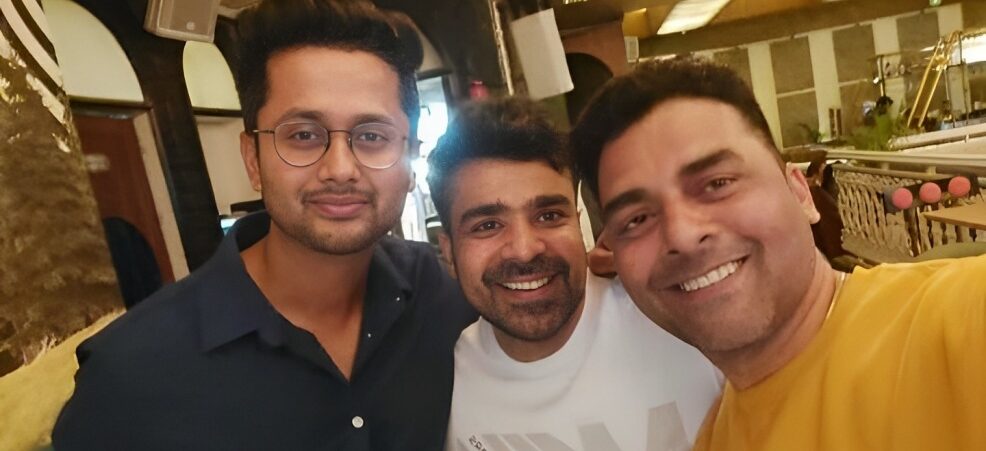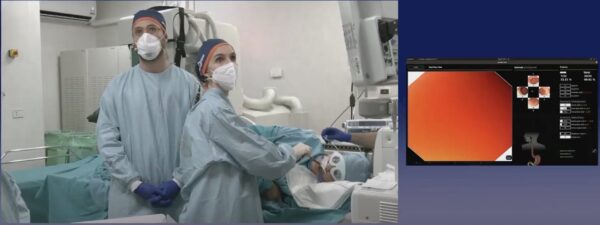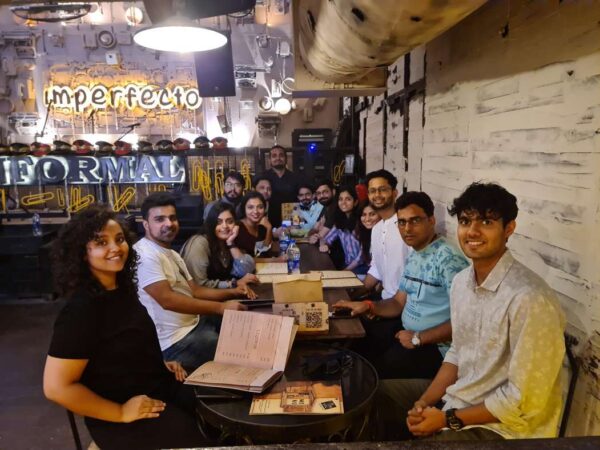Who is Endovision?
Q: Can you briefly introduce yourself and tell us about your startup’s core mission and vision?
A: Our company is called Endovision, and our main goal is to minimize blind spots in endoscopy using artificial intelligence. For those unfamiliar, endoscopy is a medical diagnostic procedure where doctors insert endoscopes to diagnose conditions in the digestive tract, like cancers or pre-cancerous states. While performing an endoscopy, there are areas not visible to the doctor, much like blind spots when driving. We’re developing solutions, known as CAQ (computer-aided quality control), to assist clinicians in better diagnosis.
Why Entrepreneurs First
Q: What motivated you to join Entrepreneurs First, and how did you learn about it?
A: I was in Hong Kong during one of the first batches of Entrepreneurs First, and their marketing was quite noticeable. I was working on a different startup idea for solo travelers at that time. One significant challenge I faced was the absence of a co-founder. Just as traveling can be more enjoyable with a companion, launching a startup with a co-founder can be advantageous. My primary aim was to delve deeper into tech, work on more challenging projects, and find a compatible partner. That’s mainly why I joined EF, as they shared the same ideology.
Entrepreneurs First Application Process
Q: Can you briefly describe the application process?
A: The application process might vary over time and by region, but in general terms, it consists of different interviews with various people. You could think of it as similar to a job interview or, if you’re a startup, it’s akin to an accelerator interview. Initially, you might discuss with an associate who tries to understand if your idea makes sense or if it’s potentially investable. In the past, they had some written tests, but they’ve since done away with that. So, it’s mainly about multiple interview rounds where they evaluate if you fit into the program and whether your ideas hold water.
After Getting In
Q: What happens after you get accepted? What does the program look like?
A: The program is split into three phases. The first phase is about networking. As a newcomer, you’ll meet others from varied backgrounds. The aim is to find someone whose skills complement yours. This phase is all about aligning startup ideas and is really fast-paced. You’re not just brainstorming; you’re also breaking apart and refining concepts with the provided templates.
The second phase culminates in an evaluation by the investment committee from Entrepreneurs First. Within just three months, teams work on ideas, speak to customers, and show their progress. If the committee sees potential, they invest. Then, the focus shifts to prepping for demo day. Here, you’re building your startup, working closely with EF, refining pitches, and interacting with both alumni and potential investors.
The third phase starts post-demo day where you present your idea and see where it leads. It’s a whirlwind experience—challenging but rewarding.
Q: Did you get any funding through the program?
A: Yeah, there’s a tiny bit of that. The main idea is not so much for the funding. If you already have a team, you can go the traditional route. But there’s a bit of funding for the initial days while you’re seeking bigger funding rounds. We were given 50k USD.
Q: Can you describe a significant milestone you achieved during the program?
A: We made a big pivot, which was a key differentiating milestone. We started with an idea in the detection space. We spoke to clinicians daily. The process behind that pivot, though not very exciting sounding, made a big difference for our startup. That pivotal moment is something I still look back on and appreciate.
Q: Did you face any challenges during the program?
A: Yes, a lot. One of the main challenges was fundraising and facing constant rejections. It’s tough to handle rejection. Even the best companies get turned down for various reasons. Also, coming from a tech background, I prefer working behind the scenes. But the program required me to step out of my comfort zone, which was challenging.
Q: Can you share any key lessons you learned during the program?
A: If you’re thinking of a startup, it’s best to think big. You’ll spend the same amount of time either way, so why not aim for a moon shot? That’s the main lesson I took away from the program.
Envisioning Endovision’s Future
Q: Like what are you focusing on?
A: Yeah, so we’re in the MedTech space, being a software as a medical device. The process is long with many steps. But we’ve progressed well. We’ve built our initial product prototypes, tested them in clinics, and got feedback. We’ve completed retrospective and prospective studies with successful results. Now, we’re actively working on getting regulatory approvals. We’re also collaborating with leading medical device companies. They assist with sales, distribution, and marketing, while we focus on core R&D. Ideally, we’d like to excel at our part and let the bigger players handle the rest.
Q: How many people are you now?
A: In total, we are around 20-21 people. We have a subsidiary in India and a base in Hong Kong. Our team includes engineers, data scientists, QA, regulatory professionals, and clinical coordinators. It’s a challenging project, but we aim to give our best.
Who Should Apply to EF?
Q: Looking back, would you say that Entrepreneurs First was worth it, and would you recommend it to other founders?
A: Yeah, I mean, totally. If you already have a team and some traction, then you can probably go the traditional way. But the main thing is finding the right co-founder. In the beginning, many startups fail if you don’t have the right partner who’s as dedicated as you. Entrepreneurs First (EF) does that for you. They find and recruit people, helping you find the right co-founder. After that, their program is well-organized. Some big players back them, so they have a strong network of investors. If you’re just starting out, then EF is a great place to learn and grow.



